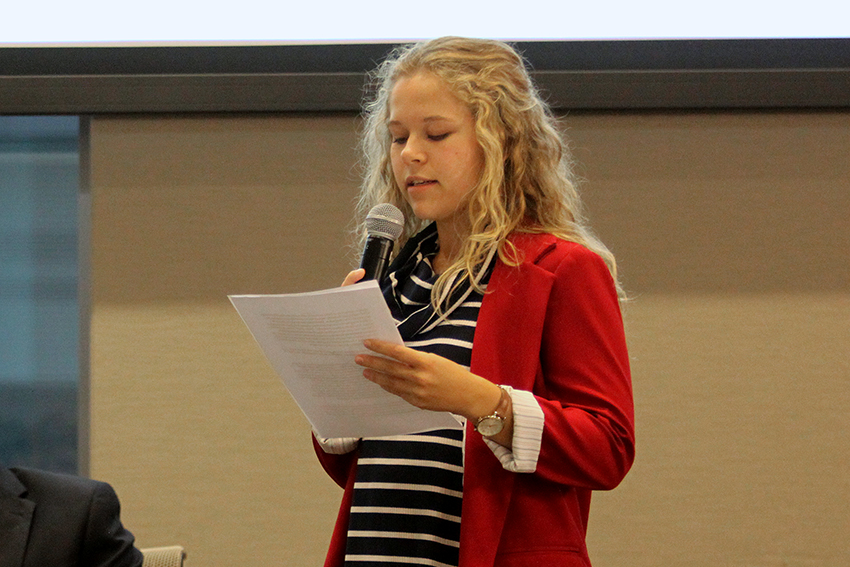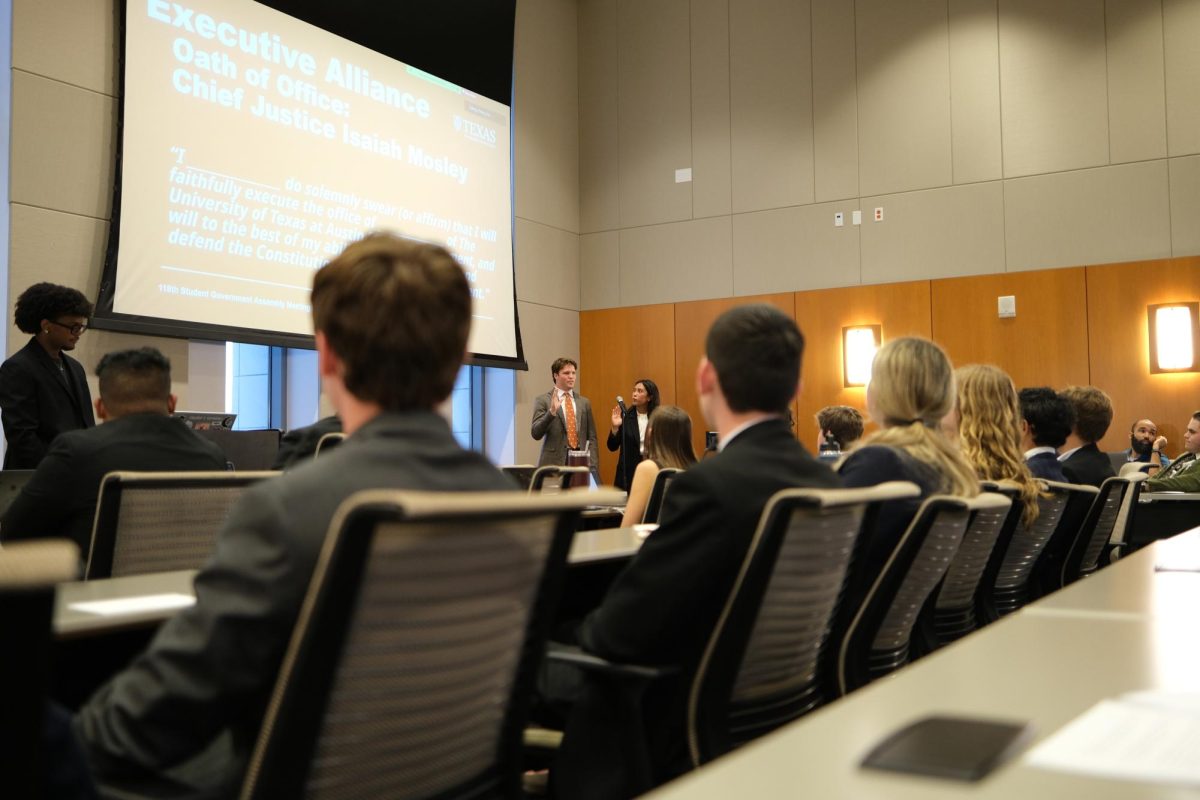Student Government held its first assembly reading for a bill to call on the UT system to better regulate oil and gas companies’ drilling on UT lands in West Texas.
The bill was fast-tracked to include its first reading Tuesday night before the bill is sent to committee and voted on in upcoming general assembly meetings.
Neuroscience sophomore Arushii Nadar represented Fossil Free Texas, a student organization that works to decrease UT’s carbon footprint, in the reading of the bill. Nadar said UT needs to commit to changing its regulations of the oil and gas companies leasing its land.
“Climate change is a pressing issue right now,” Nadar said. “UT is in a position right now where it can make a change for the better and be a leader to other states and other universities by implementing stricter regulations on the oil and gas companies drilling on its lands.”
University Lands oversees the surface and mineral interests of 2.1 million acres of land in West Texas for the UT and Texas A&M systems. The UT system brings in over $1 billion dollars annually through oil and gas drilling on these lands.
Fossil Free Texas argues against the use of fracking on UT lands due to its emission of methane gas. Fracking is the process of injecting liquid into the ground at a high pressure in order to extract oil and gas.
SG President Kevin Helgren said it’s important to make sure students are happy and taken care of, but not at the expense of the environment.
“A lot of times, when it comes to construction processes or building new facilities on campus, or perhaps how money is generated in other parts of Texas, we need to keep in mind that our two goals are creating a positive student experience for the student body, but also playing our part in preserving the world for us and our future generations,” Helgren said.
The first reading of a bill in support of campus-wide implementation of Stop the Bleeding Kits across campus also occurred Tuesday night.
Psychology sophomore Emily Burns, who authored the legislation, said the program will include training for students and faculty in basic first aid as well.
“We want to empower bystanders to become lifesavers in times of crisis,” Burns said. “In an active shooter situation, if bleeding is severe, it can kill in five minutes, potentially before first responders can arrive.”
The bill will ask the University to place the kits in the same locations as every automated external defibrillator on campus. There are 61 AEDs located in various buildings across campus, and the Stop the Bleeding kits can cost anywhere from $60 to $600, Burns said.
The assembly also approved the renaming of the Queer Student Alliance to the Queer and Trans Students Alliance in order to increase inclusiveness within the group, Helgren said.














